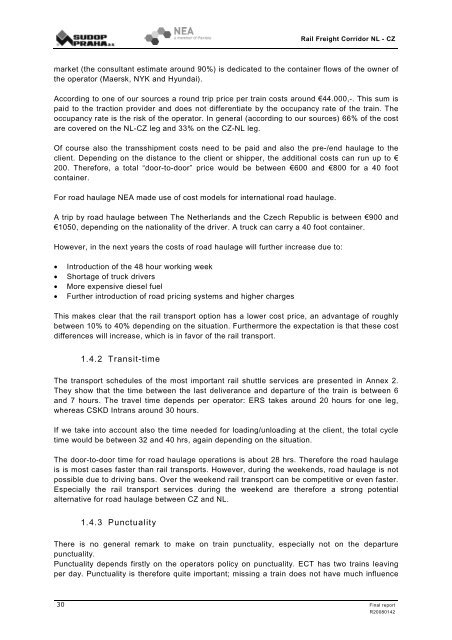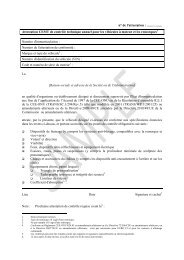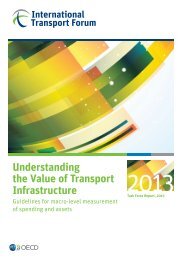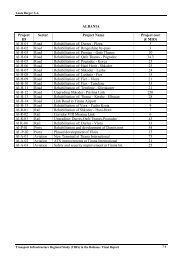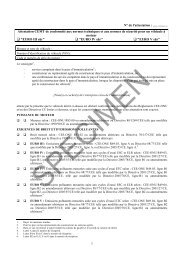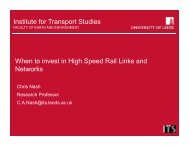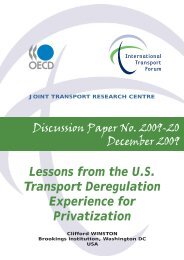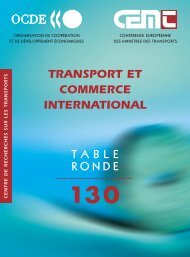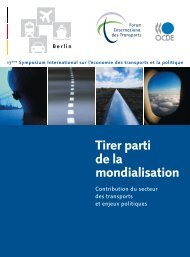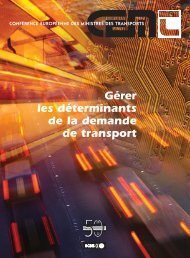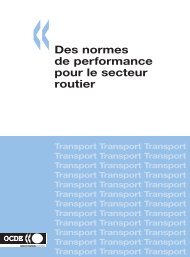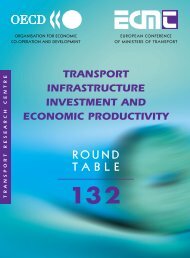Rail Freight Corridor NL - CZ final version - International ...
Rail Freight Corridor NL - CZ final version - International ...
Rail Freight Corridor NL - CZ final version - International ...
Create successful ePaper yourself
Turn your PDF publications into a flip-book with our unique Google optimized e-Paper software.
<strong>Rail</strong> <strong>Freight</strong> <strong>Corridor</strong> <strong>NL</strong> - <strong>CZ</strong><br />
market (the consultant estimate around 90%) is dedicated to the container flows of the owner of<br />
the operator (Maersk, NYK and Hyundai).<br />
According to one of our sources a round trip price per train costs around €44.000,-. This sum is<br />
paid to the traction provider and does not differentiate by the occupancy rate of the train. The<br />
occupancy rate is the risk of the operator. In general (according to our sources) 66% of the cost<br />
are covered on the <strong>NL</strong>-<strong>CZ</strong> leg and 33% on the <strong>CZ</strong>-<strong>NL</strong> leg.<br />
Of course also the transshipment costs need to be paid and also the pre-/end haulage to the<br />
client. Depending on the distance to the client or shipper, the additional costs can run up to €<br />
200. Therefore, a total “door-to-door” price would be between €600 and €800 for a 40 foot<br />
container.<br />
For road haulage NEA made use of cost models for international road haulage.<br />
A trip by road haulage between The Netherlands and the Czech Republic is between €900 and<br />
€1050, depending on the nationality of the driver. A truck can carry a 40 foot container.<br />
However, in the next years the costs of road haulage will further increase due to:<br />
• Introduction of the 48 hour working week<br />
• Shortage of truck drivers<br />
• More expensive diesel fuel<br />
• Further introduction of road pricing systems and higher charges<br />
This makes clear that the rail transport option has a lower cost price, an advantage of roughly<br />
between 10% to 40% depending on the situation. Furthermore the expectation is that these cost<br />
differences will increase, which is in favor of the rail transport.<br />
1.4.2 Transit-time<br />
The transport schedules of the most important rail shuttle services are presented in Annex 2.<br />
They show that the time between the last deliverance and departure of the train is between 6<br />
and 7 hours. The travel time depends per operator: ERS takes around 20 hours for one leg,<br />
whereas CSKD Intrans around 30 hours.<br />
If we take into account also the time needed for loading/unloading at the client, the total cycle<br />
time would be between 32 and 40 hrs, again depending on the situation.<br />
The door-to-door time for road haulage operations is about 28 hrs. Therefore the road haulage<br />
is is most cases faster than rail transports. However, during the weekends, road haulage is not<br />
possible due to driving bans. Over the weekend rail transport can be competitive or even faster.<br />
Especially the rail transport services during the weekend are therefore a strong potential<br />
alternative for road haulage between <strong>CZ</strong> and <strong>NL</strong>.<br />
1.4.3 Punctuality<br />
There is no general remark to make on train punctuality, especially not on the departure<br />
punctuality.<br />
Punctuality depends firstly on the operators policy on punctuality. ECT has two trains leaving<br />
per day. Punctuality is therefore quite important; missing a train does not have much influence<br />
30 Final report<br />
R20080142


